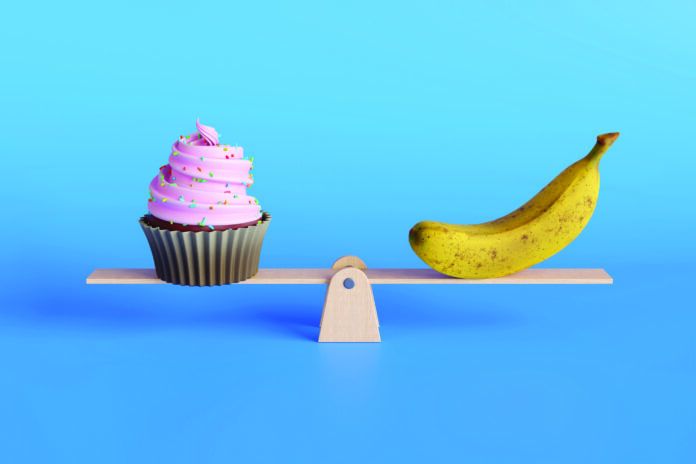You may have seen blog posts or articles asserting that some fruits should be avoided if you are trying to lose weight. Ignore them.
Essentially, weight loss is dependent on burning more calories than you take in. This means moving more and eating less—but the foods you do eat should nourish your body. Fruits are an excellent source of vitamins, minerals, fiber, and phytochemicals. Different fruits (and vegetables) come with different types and amounts of essential nutrients. Dietary guidelines recommend we eat at least two servings of fruit (and three servings of vegetables) every day, and that we vary the type we choose.
Yes, gram-for-gram, bananas may be higher in calories than some other fruits, but they are less caloric than the cake, cookies, fries, or many other snacks or sides one might eat instead. Plus, bananas are a good source of potassium (which helps lower blood pressure) and they are relatively high in fiber to help you feel full, promote regularity, and feed your gut bacteria. The same could be said for any of the other fruits you might be told to avoid: they are nutritious, fiber-rich, and a much better choice than other snack or dessert foods.
The one kind of fruit you might want to limit is dried fruit. It is easy to over-consume (and it’s bad for your teeth) and some types contain added sugars. Opt for fresh or frozen fruit, without added sugar, instead.
Weight loss is not just about what you remove from your plate—be sure to consider what you put on in its place! Replacing nutrient- and fiber-poor snack foods like chips and pretzels and typical desserts like baked goods and ice cream with fruit is a smart choice—whether you are trying to lose weight or not. Fruits (and vegetables) are an important component of a healthy dietary pattern.





















